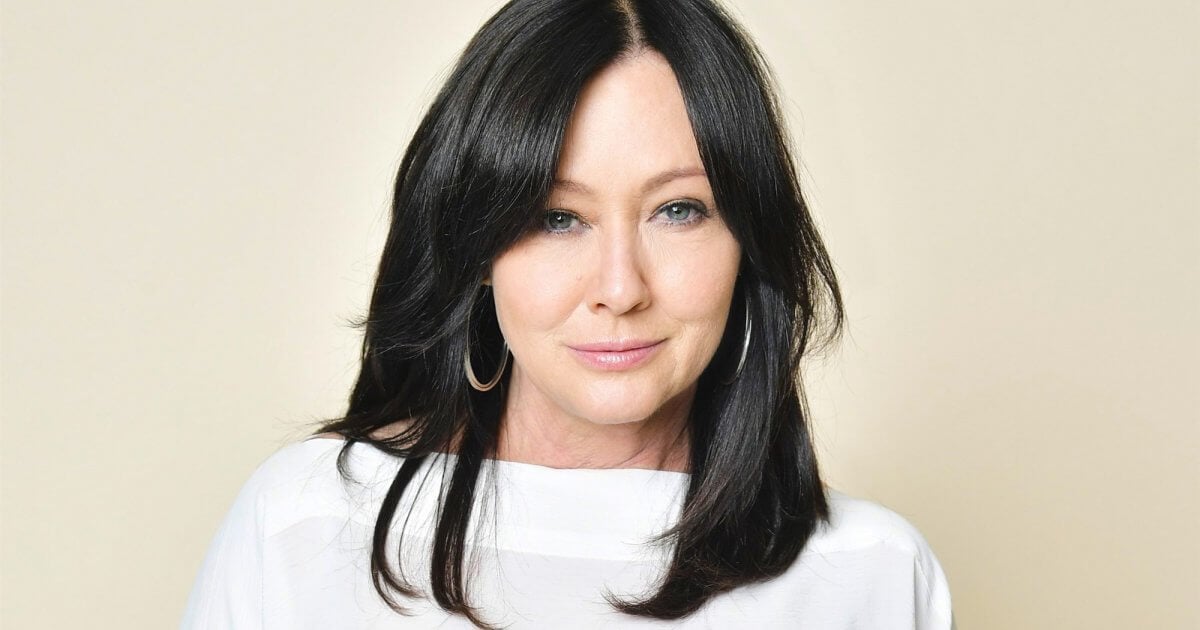Shannen's Support System
- Shannen Doherty, 49, is battling metastatic breast cancer and thanks her mom on her birthday for showing her love and support.
- Doherty was first diagnosed with breast cancer in 2015; in 2020, the cancer returned and it had spread.
- Breast cancer is typically detected through mammogram screenings; it’s also important to regularly do self-checks to look for lumps.
View this post on Instagram
Shannen’s Breast Cancer Journey
Shannen Doherty was first diagnosed with breast cancer in 2015. Following treatment, it went into remission. But earlier this year, Doherty shared that her breast cancer returned.
She is currently battling metastatic breast cancer, which means her cancer has spread to other parts of her body. Dr. Elizabeth Comen, a Medical Oncologist at Memorial Sloan Kettering Cancer Center, told SurvivorNet in an earlier interview what it means to get a metastatic breast cancer diagnosis.
Related: Chemo Plus Immunotherapy for Metastatic Triple-Negative Breast Cancer
“Technically, metastatic breast cancer is not curable, but it is highly treatable, especially depending upon the type of disease that a woman can have,” said Dr. Comen. “The first step with someone with stage four breast cancer is to try to figure out: Where is the metastatic breast cancer? Meaning, where did it spread? Because that’s what defines stage four breast cancer.”
Dr. Comen said that the disease doesn’t always present with symptoms, either. “Some women are diagnosed incidentally with stage four breast cancer; meaning, they had some scan, or for some other reason, the breast cancer was picked up and found as metastatic, but they really didn’t have any symptoms. In that situation, what we’re really trying to do is keep things as stable as possible.”
Dr. Elizabeth Comen breaks down metastatic breast cancer
Detecting Breast Cancer
Detecting breast cancer is typically done via a mammogram screening. Dr. Connie Lehman, Chief of Breast Imaging Division at Massachusetts General Hospital, told SurvivorNet in a previous interview that women should start doing yearly mammogram screening as early as age 30 if you fall into a high-risk category (i.e. if you have a history of breast cancer in your family, or if you had radiation to the chest area when you were younger).
The current consensus is that women should have annual mammograms between the ages of 45 and 54. “We all agree regular screening mammography saves lives,” said Dr. Lehman. While mammograms are life-saving, self-checks can be, too. It’s important to perform self-checks regularly to look for lumps or anything that feels unusual.
Related: When Should I Get a Mammogram?
Dr. Comen also told SurvivorNet that she recommends doing a self-exam every month. “When we think about prevention, breast cancer prevention, and awareness, the first step is that women need to feel comfortable with their breasts and that they know what their breasts feel like normally. And for some women, that may mean going to their doctor and walking through what a self-breast exam might feel like so that they know what normal breast tissue feels like, so that if they do feel anything abnormal, whether it’s a lump or discharge from the nipple, that they know what to ask and what to look for.”
Related: It's Important To Continue Cancer Screenings Through COVID-19
Dr. Comen said that due to the variety in breast type, it can be difficult for some women to make self-assessments. “Some women have what’s called fibrocystic breasts, meaning they have very lumpy, bumpy breasts, and it’s hard for them to know what’s normal and what’s not. With that in mind, self-breast exams should probably be done every month.”
Related: Genetic Testing For Breast Cancer
Most women find it best and easiest to perform a self-check while showering. “And a lot of women say that in the shower it’s easier because of the water, and it’s just easier to do in that setting. There are no specific hotspots, but there are areas that women might not be as aware have also breast tissue. So if a woman feels a lump in her axilla, or her armpit, that’s also important to tell their doctor about….So anything in that quadrant that a woman feels that is abnormal, they really should take the time to talk to their doctor.”
As Doherty battles breast cancer, we’re grateful that she’s sharing her journey with the world, which is raising awareness around breast cancer as a result. We’re thrilled, too, to see that she has such an incredible mom in her corner, arming her with love and support.
Getting to Know Your Breasts with Self-Exams
Learn more about SurvivorNet's rigorous medical review process.


